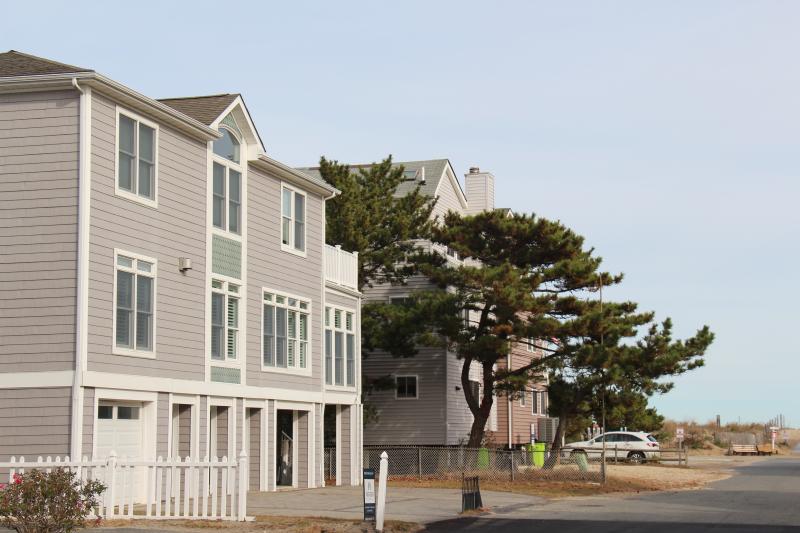Dewey committee recommends increase in freeboard requirement
The Dewey Beach Charter & Code Review Committee met Dec. 11, when they discussed potential recommendations to town commissioners regarding increased freeboard, changing setbacks for plunge pools and clarifying code governing the elevation of flood-zone properties.
Freeboard is the distance between a structure’s first floor and the base flood elevation, which is the calculated level to which flood waters are expected to rise during a 100-year flood. Freeboard is essentially meant to compensate for various unknown factors that could make flood heights greater than those calculated.
Dewey currently requires 1 foot of freeboard, but commissioners recently increased the requirement to 2 feet, a change set to go into effect in April. At the Dec. 11 meeting, the committee discussed whether to recommend council raise the requirement by an additional foot, increasing it to 3 feet.
According to committee members, increasing freeboard would reduce flood risk, lower flood insurance premiums, increase property value and marketability, lead to insurance discounts and reap environmental and community benefits. However, the increase would also raise construction costs, reduce accessibility and affect building aesthetics.
“I’m a little nervous about the increased heights and restricting everyone’s views,” said committee member David Biron. “I think it’s going to be really noticeable, like [a] tower effect.”
Several members agreed that the increase would negatively affect the overall appearance of buildings, emphasizing that, while increasing the freeboard will not impact building height, it will affect elevation. In other words, increasing the freeboard in flood zones would cause structures to appear taller.
Much of Dewey is considered by the Federal Emergency Management Agency to be in special flood hazard area zones AE, AO and VE. In those zones, the building height is measured from the base flood elevation point to the highest point on the building.
In zones AE and AO, the maximum building height is 32 feet measured from the height of base flood elevation plus the town-mandated freeboard. In the VE zone, the maximum building height allowed is 32 feet measured from the height of base flood elevation plus the town-mandated freeboard, plus one additional foot.
The committee ultimately voted to approve the recommendation to allow it to be brought before a larger public forum.
Plunge pools
The committee also discussed a proposal regarding changing setbacks for plunge pools, which are defined as pools that are no greater than 10 feet wide and 18 feet long, and no deeper than 4.5 feet. The proposal aims to incentivize property owners to install plunge pools rather than full-size recreational pools.
The town code currently allows property owners to install any size pool, as long as it meets current setback requirements – 6 feet for rear yards and 10 feet for side yards.
The proposal, which would apply to plunge pools only and not full-size recreational pools, would allow plunge pools to be built 6 feet from a property line, as opposed to the current 10 feet. It would also reduce rear-yard setbacks from 6 feet to 4 feet and allow a feature wall on one side.
The proposed legislation was introduced last summer but was met with concerns from community members regarding possible increases in excessive noise levels and whether the reduced setbacks would pose structural hazards for neighboring properties.
Marcia Schieck, the only committee member at the meeting in favor of moving forward with the proposal, addressed those concerns, explaining that plunge pools are specifically designed to reduce noise levels, with lower capacities and less space. She also stated that, according to Kevin Orndorf, founder of Wilmington-based structural engineering and design firm Orndorf & Associates, reducing setbacks for plunge pools presents no structural hazards.
Still, resident Cindy Souza voiced her opposition to the proposal, stating that she and her neighbors are already constantly barraged by noise from renters hanging out in and around pools – that, under the committee’s definition, would be considered plunge pools – on neighboring properties.
“It isn’t just because they’re in the pool, it’s because everybody’s lounging around the pool, drinking, having a great time,” she said. “And I’m all for that. If you want to build a pool, have at it. I just don’t want them 3 feet closer to my back property line.”
The committee decided to table the proposal for later discussion and to recommend council review the 3-foot safety requirement for walkways around pools.













































